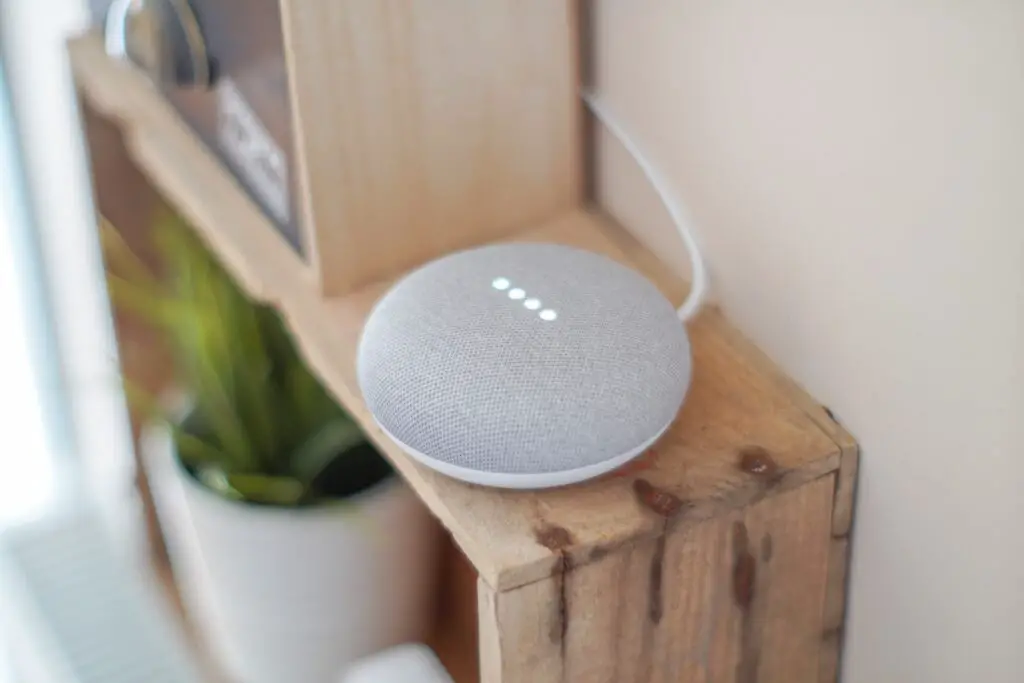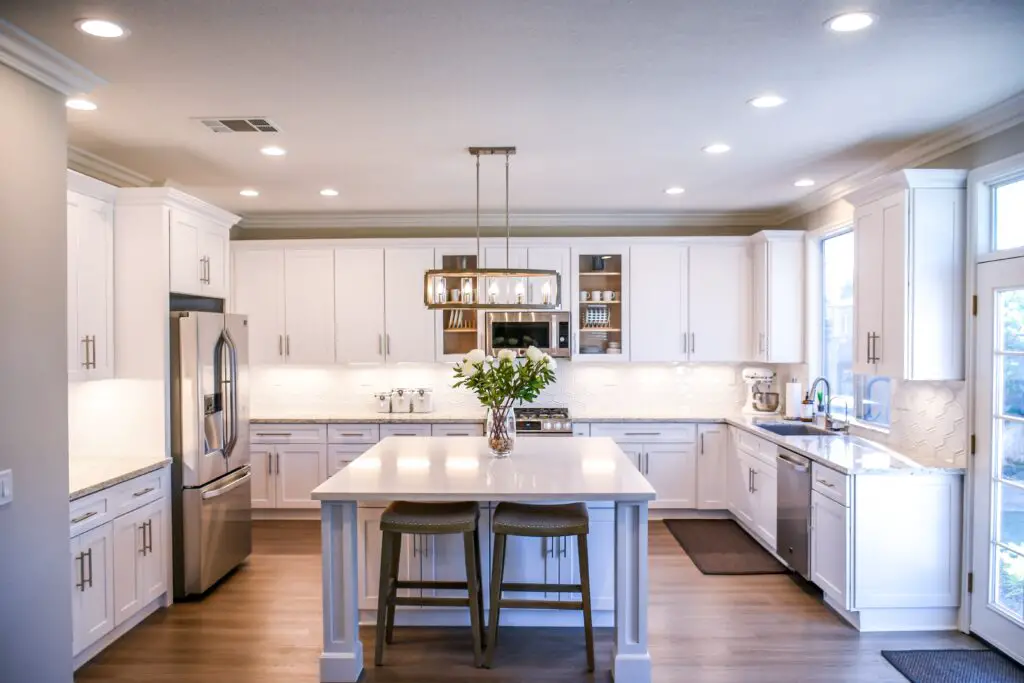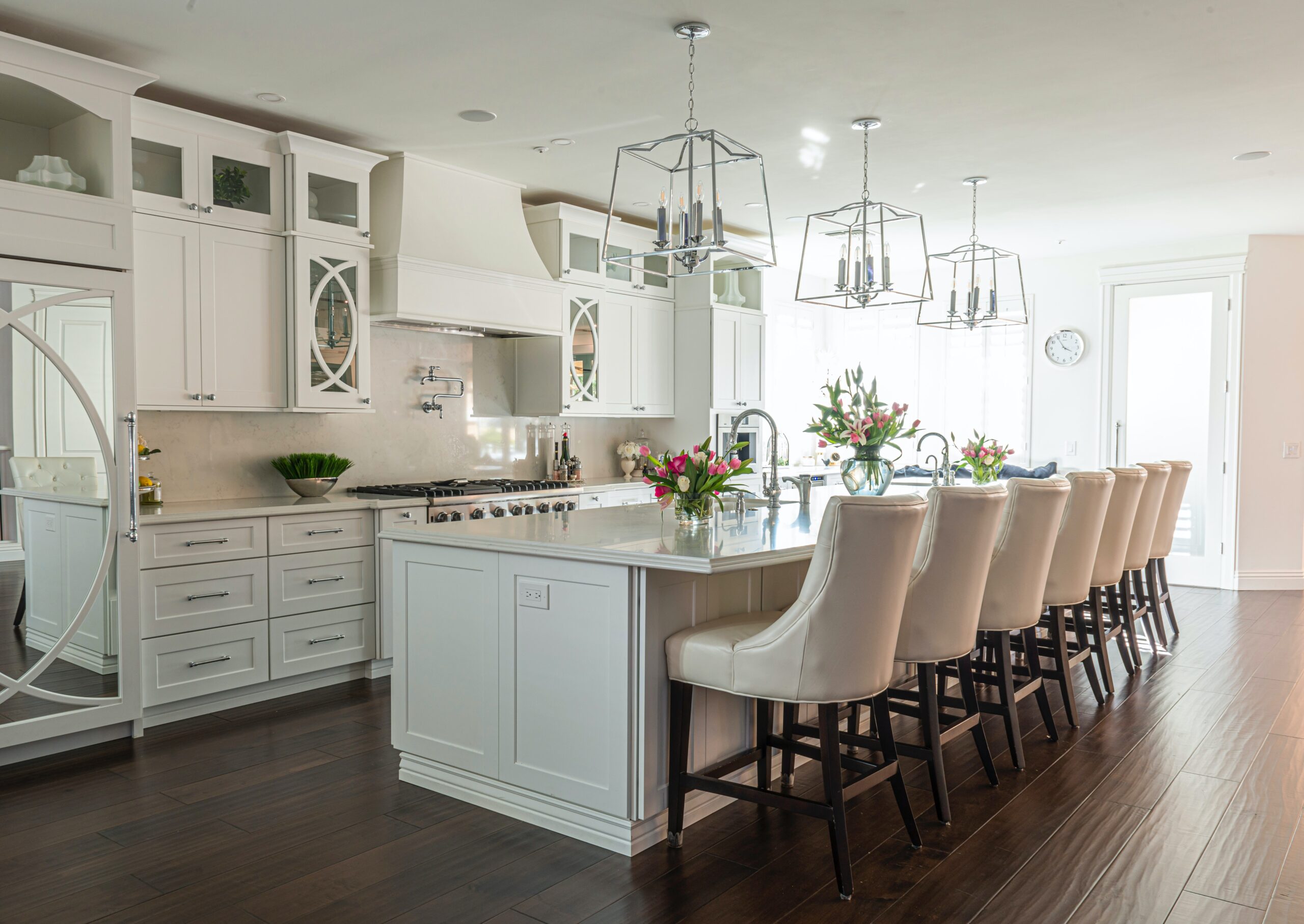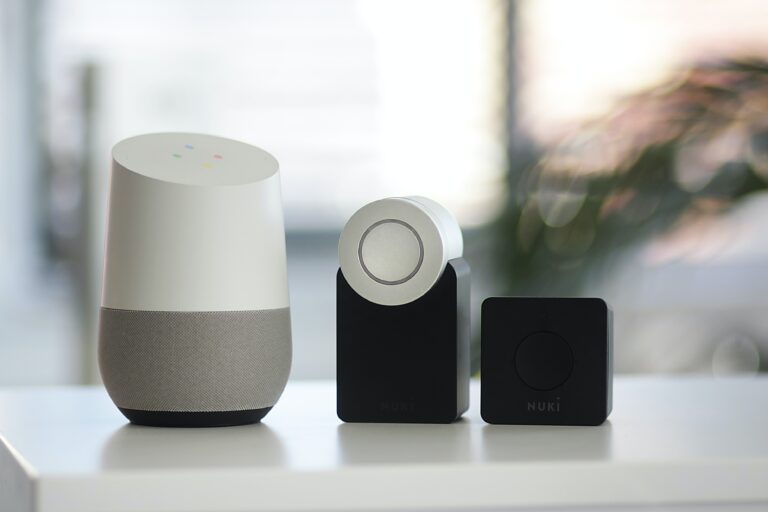Imagine walking into your home and having the lights adjust to your mood, the thermostat set to your preferred temperature, and your favorite playlist welcoming you as you step through the door.
Home automation, also known as smart home, offers a seamless blend of technology and comfort, providing a range of benefits that can enhance your daily life. From convenience and energy efficiency to security and entertainment, the advantages of embracing home automation are diverse and compelling.
In this comprehensive guide, we’ll delve into the numerous reasons why you should consider transforming your living space into a smart home.
1. Convenience and Comfort

The allure of home automation begins with convenience and comfort. Imagine controlling your home environment with a few taps on your smartphone or through voice commands.
Smart homes enable remote management of various devices and appliances, offering a level of control that was previously unimaginable. Whether you’re adjusting the lighting, changing the thermostat settings, or even brewing your morning coffee from bed, home automation caters to your preferences effortlessly.
A. Remote Control of Devices and Appliances
Smart home technology allows you to control a wide range of devices and appliances from anywhere. With smart plugs, for instance, you can turn off forgotten appliances remotely, providing both peace of mind and energy savings. Similarly, smart lighting systems let you adjust brightness color, and even set schedules to mimic your presence while you’re away, enhancing security.
B. Automated Routines and Schedules
The ability to program and automate routines is a game-changer. You can set your smart home to wake you up with gentle lighting and gradually increasing thermostat temperatures, simulating a natural sunrise.
Returning home, your favorite music can start playing, and the lights can illuminate your path. These automated routines simplify your life, making mundane tasks effortless and adding an element of luxury to your daily routine.
2. Energy Efficiency
One of the most significant advantages of home automation is its impact on energy efficiency. Traditional homes often waste energy due to inefficient use of resources. Smart homes, however, leverage technology to optimize energy consumption and reduce your carbon footprint.
A. Smart Thermostats and HVAC Systems
Smart thermostats are at the forefront of energy-efficient home automation. These devices learn your temperature preferences and adjust settings accordingly. They can even detect when you’re away and automatically adjust the temperature to save energy. Over time, this not only leads to significant cost savings but also demonstrates your commitment to environmental conservation.
B. Lighting Control and Efficiency
Smart lighting solutions offer precise control over your home’s illumination. Motion sensors can turn lights on and off as you move through different rooms, ensuring that energy is only used where needed.
Dimming capabilities allow you to set the perfect ambiance while consuming less power. Additionally, scheduling lights to turn off automatically during daylight hours further contributes to reducing energy consumption.
3. Enhanced Security

The safety of your loved ones and your belongings is paramount, and this is another realm where home automation shines. Smart homes offer advanced security features that provide peace of mind, even when you’re not physically present.
A. Smart Security Cameras and Doorbell Cameras
Smart security cameras allow you to monitor your home in real time through your smartphone. Receive alerts when motion is detected, ensuring you’re aware of any potential threats. Doorbell cameras provide a clear view of visitors, even allowing you to communicate with them remotely. Whether you’re at work or on vacation, you can keep a watchful eye on your property.
B. Smart Locks and Access Control
Traditional keys are becoming obsolete with the emergence of smart locks. These locks offer keyless entry, which is not only convenient but also more secure. You can grant temporary access to guests, service providers, or even delivery personnel, all while maintaining complete control over who enters your home.
4. Safety and Monitoring
Home automation also plays a crucial role in safety and monitoring, helping prevent accidents and mitigating potential risks.
A. Smoke and Carbon Monoxide Detectors
Smart smoke and carbon monoxide detectors provide timely alerts in case of emergencies. They can send notifications to your phone and even contact emergency services if necessary. This proactive approach ensures that you and your family are always protected, even when you’re not at home.
B. Water Leak and Flood Sensors
Water damage can wreak havoc on your home and possessions. Smart water leak and flood sensors detect moisture and send alerts to your devices, allowing you to take immediate action. By addressing leaks promptly, you can prevent costly repairs and safeguard your home’s structural integrity.
5. Entertainment and Multimedia

Home automation transforms how you experience entertainment and multimedia within your living space.
A. Smart Audio and Video Systems
Centralized control of audio and video systems is a hallmark of smart homes. With integrated systems, you can manage music, movies, and TV shows across multiple rooms seamlessly. This level of convenience enhances your entertainment experience, making it effortless to enjoy your favorite content.
B. Voice-Controlled Assistants
Virtual assistants, such as Amazon’s Alexa or Google Assistant, are key components of smart homes. They respond to voice commands, enabling you to control various devices hands-free. Whether you want to play music, adjust the lights, or ask about the weather, these assistants are always ready to assist.
6. Increased Property Value
Investing in home automation isn’t just about improving your current lifestyle; it’s also a savvy financial decision.
A. Growing Demand for Smart Homes
The demand for smart homes is on the rise. As technology becomes increasingly integrated into daily life, homebuyers are actively seeking properties with automation features. Having a smart home can give you a competitive edge in the real estate market.
B. Appeal to Tech-Savvy Homebuyers
Tech-savvy individuals are drawn to the conveniences and possibilities that smart homes offer. When you incorporate home automation, you cater to a demographic that values innovation and seamless living experiences.
C. Potential for Higher Resale Value
Smart homes often command higher resale values. Buyers are willing to pay a premium for a home that is already equipped with the latest technology. By investing in home automation, you’re not only enhancing your own lifestyle but also positioning your property as a valuable asset.
7. Accessibility and Aging in Place

Home automation has the potential to revolutionize the lives of elderly and disabled individuals, allowing them to maintain their independence.
A. Benefits for Elderly and Disabled Individuals
Smart home technology provides elderly and disabled individuals with tools to manage their homes more easily. Voice-controlled systems can help them adjust settings, make calls, and even control medical devices, reducing reliance on caregivers.
B. Adaptable Environments for Changing Needs
Smart homes can adapt to changing needs. Whether it’s adjusting the lighting for better visibility or setting reminders for medications, automation ensures that the living environment is supportive and accommodating.
8. Cost Savings
Home automation not only enhances convenience but also contributes to long-term cost savings.
A. Reduction in Energy Bills
One of the most direct benefits of home automation is the reduction in energy consumption. By optimizing the use of devices and appliances, you can significantly lower your utility bills. Smart thermostats and energy-efficient lighting systems are particularly effective in this regard.
B. Preventive Maintenance and Early Issue Detection
Smart home sensors can monitor the performance of various systems, detecting irregularities and potential malfunctions. This early detection allows you to address issues before they escalate, extending the lifespan of appliances and preventing costly repairs.
9. Data Collection and Insights

Smart homes generate valuable data that can inform more informed decisions about energy usage, routines, and more.
A. Monitoring and Analyzing Consumption Patterns
Smart home systems collect data on your energy consumption and usage patterns. This data can be analyzed to identify trends and areas where energy could be conserved. By understanding your consumption habits, you can make adjustments to reduce waste.
B. Utilizing Data for More Informed Decisions
The insights generated by smart home technology can guide you in optimizing various aspects of your life. Whether it’s adjusting your routine to align with your energy consumption patterns or making informed decisions about appliance upgrades, data-driven insights empower you to live more efficiently.
10. Privacy and Security Considerations
As we embrace the convenience of smart homes, it’s essential to be mindful of privacy and security concerns.
A. Concerns Related to Data Privacy
Smart home devices collect data about your habits, preferences, and routines. It’s important to choose reputable brands and understand how your data is used and protected. Review privacy policies and settings to ensure you’re comfortable with the data being collected.
As with any technology, there’s a potential for hacking and unauthorized access. To mitigate these risks, ensure your network is secure, use strong and unique passwords, and keep your devices’ firmware updated. Regularly review your device permissions to prevent unauthorized users from gaining access.
Conclusion
The benefits of home automation are extensive and far-reaching, offering an improved quality of life, energy efficiency, enhanced security, and more. By embracing smart home technology, you’re not only making your daily routines more convenient but also contributing to a sustainable and comfortable future. As technology continues to advance, the possibilities for home automation are only set to expand, making now an opportune time to embark on your journey to a smarter home.
Frequently Asked Questions
1. What is the importance of home automation?
Home automation is essential for modern living as it enhances convenience, energy efficiency, security, and entertainment. It simplifies tasks, saves energy, and provides a connected and intelligent living environment.
2. What are the 4 benefits of smart homes?
Smart homes offer convenience through remote control, energy savings via optimized devices, advanced security with real-time monitoring, and improved entertainment experiences with integrated multimedia systems.
3. What are the benefits of smart devices?
Smart devices provide convenience by allowing remote control, contribute to energy efficiency through automation and optimization, enhance security through monitoring and alerts, and offer personalized entertainment experiences.
4. What are the benefits of using home automation sensors and devices throughout a home?
Home automation sensors and devices enhance safety by detecting and preventing potential dangers like fires and leaks. They also provide insights into energy consumption patterns, leading to cost savings and more informed decision-making.



